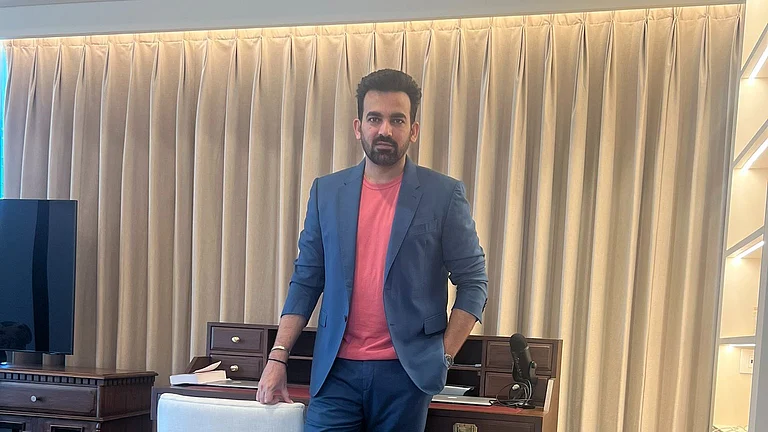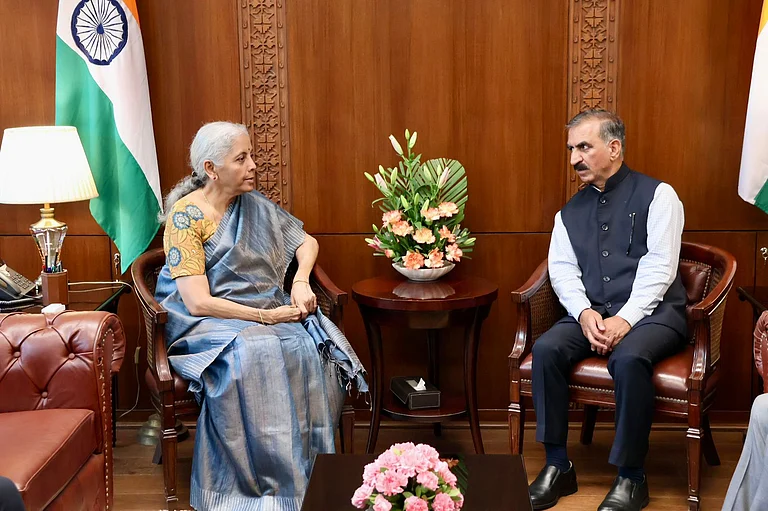While growing up in a relatively privileged urban joint family in Rajasthan, 49-year-old Arun Gupta always wondered why his family stiffened every time an advertisement for a sanitary napkin flashed on TV. One day, he mustered up the courage to ask his family what “period” was, only to be told to never use that word again, that it was a matter concerning women and that he should not get into it. The memory came back to him years later in his Noida apartment when his 16-year-old daughter came up to him with a question about periods. “Our domestic help had brought her daughter, who was menstruating and had a stain on her clothes. Upon inquiring, my daughter found out from her that she did not use a pad. She came to me asking why, aghast at the very thought that a girl her age could survive her periods without a pad. It got me thinking,” Gupta recalls.
Gupta, a mechanical engineer, is the founder of the Pinkishe foundation, a non-profit organisation that runs pad banks across 25 states and Union territories, and works toward providing accessible menstrual healthcare products and literacy to millions of women. Since its inception, the organisation has distributed sanitary napkins to four million women free of cost. Apart from distributing pads, Pinkishe also provides menstrual and reproductive health literacy and advocacy to women and girls, especially in rural areas. “It all started when my daughter insisted she wanted to start work on the problem of period poverty,” he tells Outlook. His daughter, Khyati, started a campaign among her friends and classmates where she collected pads and distributed them among those in need. That’s where the idea of pad banks came from. “The network of women volunteers who work with us connect with us through social media or through our on-ground camps. These women go door to door to ask families to donate a sanitary napkin. These napkins are then distributed in camps.
“Initially, I was just helping my daughter’s small campaign. But eventually, I realised that this was no child’s play. She was serious and I became too. Then I realised the extent of the problem women face in India, even in accessing basic human rights.” Over the years, Gupta’s experience taught him many things about why period poverty continues to exist in India, despite massive strides in public health in the last few decades. “The main problem is lack of medical literacy and unequal socio-economic status of women. Menstrual healthcare is expensive and relying on donations is not the answer,” Gupta states. The former mechanical engineer also points out that providing supplies of disposable sanitary napkins also posed the problem of disposal, which has both ecological and social facets.
(This appeared in the print edition as "Reducing period poverty, one pad at a time")
Liked the story? Do you or your friends have a similar story to share about 'ordinary' Indians making a difference to the community? Write to us. If your story is as compelling, we'll feature it online. Click here to submit.


























